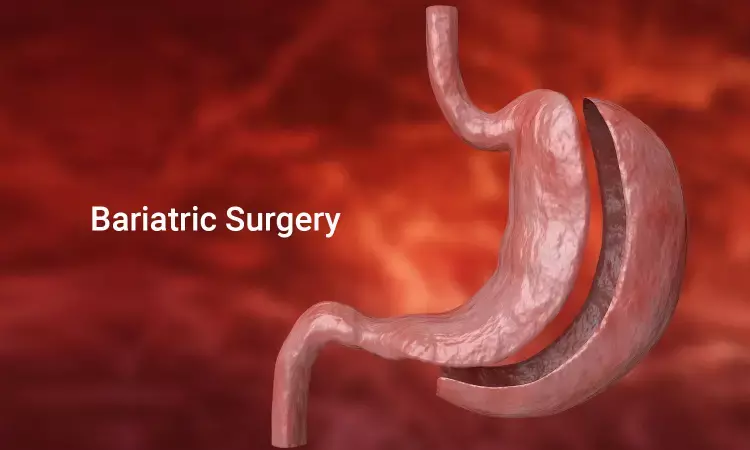- Home
- Medical news & Guidelines
- Anesthesiology
- Cardiology and CTVS
- Critical Care
- Dentistry
- Dermatology
- Diabetes and Endocrinology
- ENT
- Gastroenterology
- Medicine
- Nephrology
- Neurology
- Obstretics-Gynaecology
- Oncology
- Ophthalmology
- Orthopaedics
- Pediatrics-Neonatology
- Psychiatry
- Pulmonology
- Radiology
- Surgery
- Urology
- Laboratory Medicine
- Diet
- Nursing
- Paramedical
- Physiotherapy
- Health news
- Fact Check
- Bone Health Fact Check
- Brain Health Fact Check
- Cancer Related Fact Check
- Child Care Fact Check
- Dental and oral health fact check
- Diabetes and metabolic health fact check
- Diet and Nutrition Fact Check
- Eye and ENT Care Fact Check
- Fitness fact check
- Gut health fact check
- Heart health fact check
- Kidney health fact check
- Medical education fact check
- Men's health fact check
- Respiratory fact check
- Skin and hair care fact check
- Vaccine and Immunization fact check
- Women's health fact check
- AYUSH
- State News
- Andaman and Nicobar Islands
- Andhra Pradesh
- Arunachal Pradesh
- Assam
- Bihar
- Chandigarh
- Chattisgarh
- Dadra and Nagar Haveli
- Daman and Diu
- Delhi
- Goa
- Gujarat
- Haryana
- Himachal Pradesh
- Jammu & Kashmir
- Jharkhand
- Karnataka
- Kerala
- Ladakh
- Lakshadweep
- Madhya Pradesh
- Maharashtra
- Manipur
- Meghalaya
- Mizoram
- Nagaland
- Odisha
- Puducherry
- Punjab
- Rajasthan
- Sikkim
- Tamil Nadu
- Telangana
- Tripura
- Uttar Pradesh
- Uttrakhand
- West Bengal
- Medical Education
- Industry
Bariatric surgery lowers diabetic retinopathy risk in obese patients with type 2 diabetes: Study

Canada: Bariatric surgery in patients with obesity and type 2 diabetes (T2D) is associated with fewer cases of diabetic retinopathy, finds a recent study. The findings of the study were presented at the American Academy of Ophthalmology meeting held from Nov. 12-15, 2021 and subsequently published in the American Journal of Ophthalmology.
Bariatric surgery in obese patients has been shown to result in remission of type 2 diabetes and reduce other microvascular complications. However, its impact on diabetic retinopathy is not clear. Results from some trial suggests early worsening of DR postsurgery because of rapid improvements in hyperglycemia.
Caberry W Yu, School of Medicine, Queen's University, Kingston, Ontario, Canada, and colleagues sought to estimate the impact of bariatric surgery on DR for obese patients compared with medical treatment in a meta-analysis.
For the purpose, the searched the online databases up to March 2020. The study included primary studies comparing DR in patients undergoing bariatric surgery with those undergoing medical management. The researchers meta-analyzed the results using a random-effects model.
Primary outcomes included prevalence of all DR and sight-threatening DR after surgery.
The meta-analysis overall included 14 studies comprised of 110,300 surgical patients and 252,289 control subjects.
Based on the study, the researchers found the following:
- Surgical patients were found to have significantly lower postoperative prevalence of all DR (relative risk [RR] 0.17) and sight-threatening DR (RR 0.47).
- Early worsening of DR and progression to sight-threatening DR had occurred more often in those with more severe DR initially. However, beyond 12 months, bariatric surgery resulted in significantly fewer patients with worsened DR (RR 0.29).
- The overall risk of bias was low; estimates of relative effects had low to moderate certainty of evidence.
"The results showed that bariatric surgery was related to lesser cases of all and sight-threatening DR, however, early worsening was more severe in patients who had existing sight-threatening DR," wrote the authors.
There should be frequent monitoring during the first postoperative year, they suggested.
Reference:
Yu CW, Park LJ, Pinto A, Ma ON, Lee Y, Gupta R, Chaudhary V, Doumouras AG, Hong D. The Impact of Bariatric Surgery on Diabetic Retinopathy: A Systematic Review and Meta-Analysis. Am J Ophthalmol. 2021 May;225:117-127. doi: 10.1016/j.ajo.2020.12.033. Epub 2021 Jan 9. PMID: 33428884.
Dr Kamal Kant Kohli-MBBS, DTCD- a chest specialist with more than 30 years of practice and a flair for writing clinical articles, Dr Kamal Kant Kohli joined Medical Dialogues as a Chief Editor of Medical News. Besides writing articles, as an editor, he proofreads and verifies all the medical content published on Medical Dialogues including those coming from journals, studies,medical conferences,guidelines etc. Email: drkohli@medicaldialogues.in. Contact no. 011-43720751


